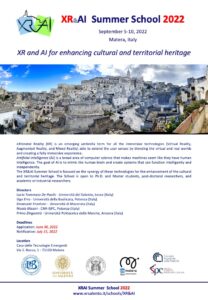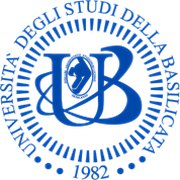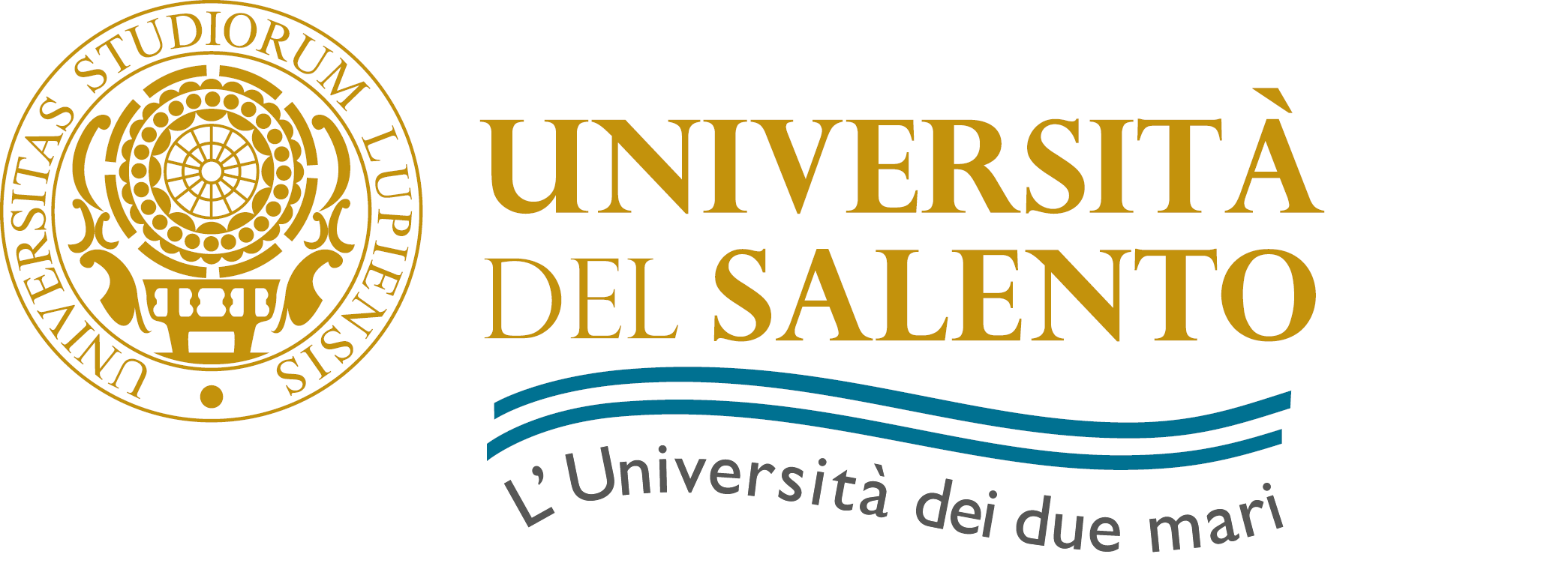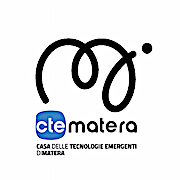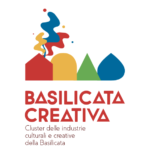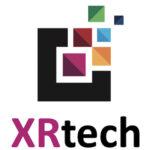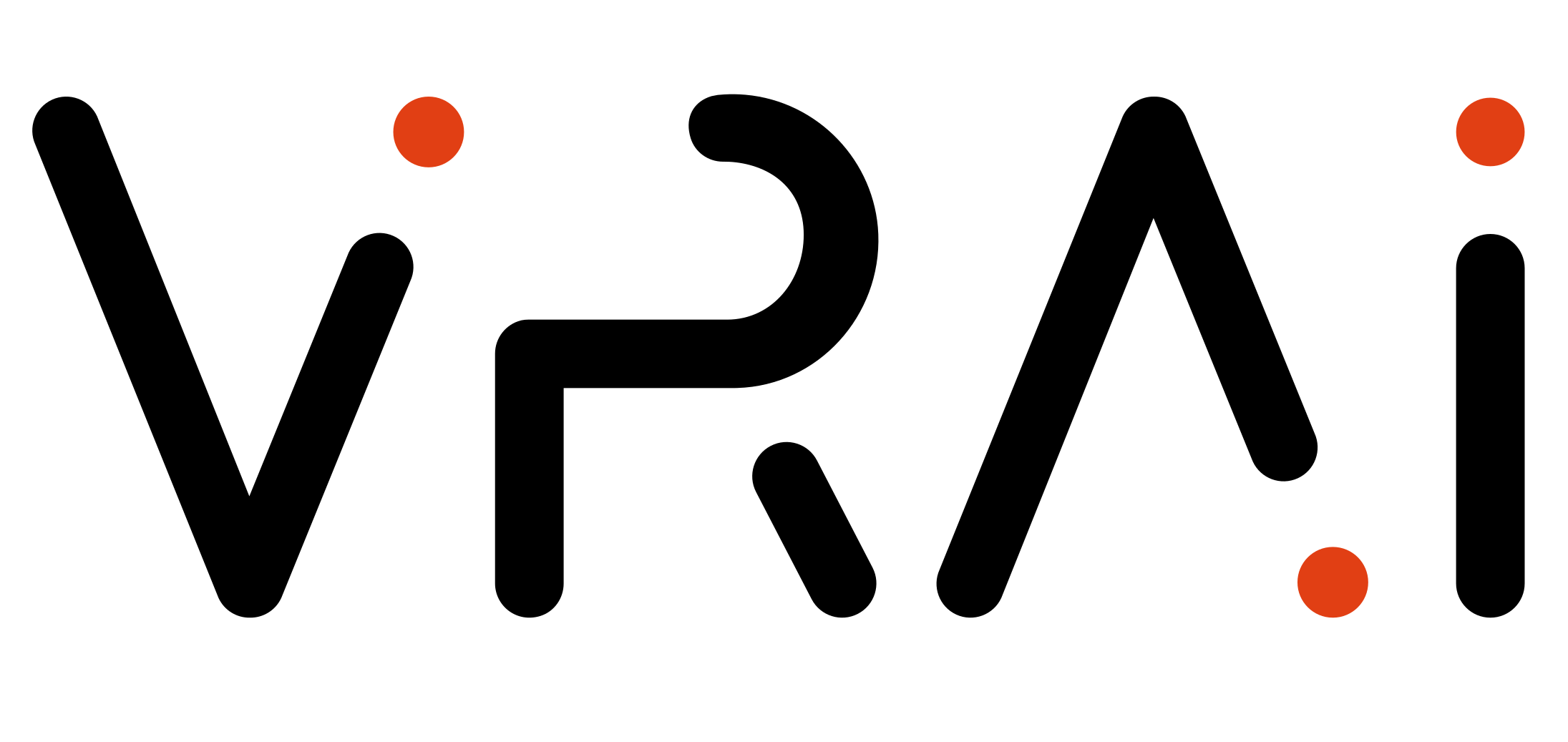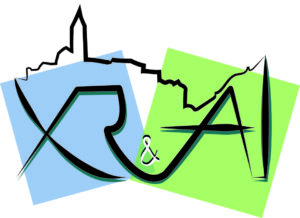
eXtended Reality and Artificial Intelligence
International Summer School 2022
“XR and AI for enhancing cultural and territorial heritage”
September 5-10, 2022 – Matera, Italy
eXtended Reality (XR) is an emerging umbrella term for all the immersive technologies (Virtual Reality, Augmented Reality, and Mixed Reality) able to extend the user senses by blending the virtual and real worlds and creating a fully immersive experience.
Artificial Intelligence (AI) is a broad area of computer science that makes machines seem like they have human intelligence. The goal of Ai is to mimic the human brain and create systems that can function intelligently and independently.
The XR&AI Summer School is focused on the synergy of these technologies for the enhancement of the cultural and territorial heritage. The School is open to Ph.D. and Master students, post-doctoral researchers, and academic or industrial researchers.
In order to accommodate a large number of situations, the Summer School 2022 will be a hybrid event,
giving participants the opportunity to attend in presence or remotely.
The XR&AI Summer School is a satellite event of the International Conference on eXtended Reality (XR Salento).
Take a look back at the previous schools:
- eXtended Reality Spring School 2022
- Augmented and Virtual Reality Summer School 2019
- Augmented Reality Summer School 2018
- Virtual Reality Summer School 2017
Directors
Lucio Tommaso De Paolis – Università del Salento, Lecce (Italy)
Ugo Erra – Università della Basilicata, Potenza (Italy)
Emanuele Frontoni – Università di Macerata (Italy)
Nicola Masini – CNR-ISPC, Potenza (Italy)
Primo Zingaretti – Università Politecnica delle Marche, Ancona (Italy)
Organizing Committee
Laura Corchia – Università del Salento, Lecce (Italy)
Carola Gatto – Università del Salento, Lecce (Italy)
Silvia Liaci – Università della Basilicata, Matera (Italy)
Silke Miss – XRtechnology srl, Lecce (Italy)
Program
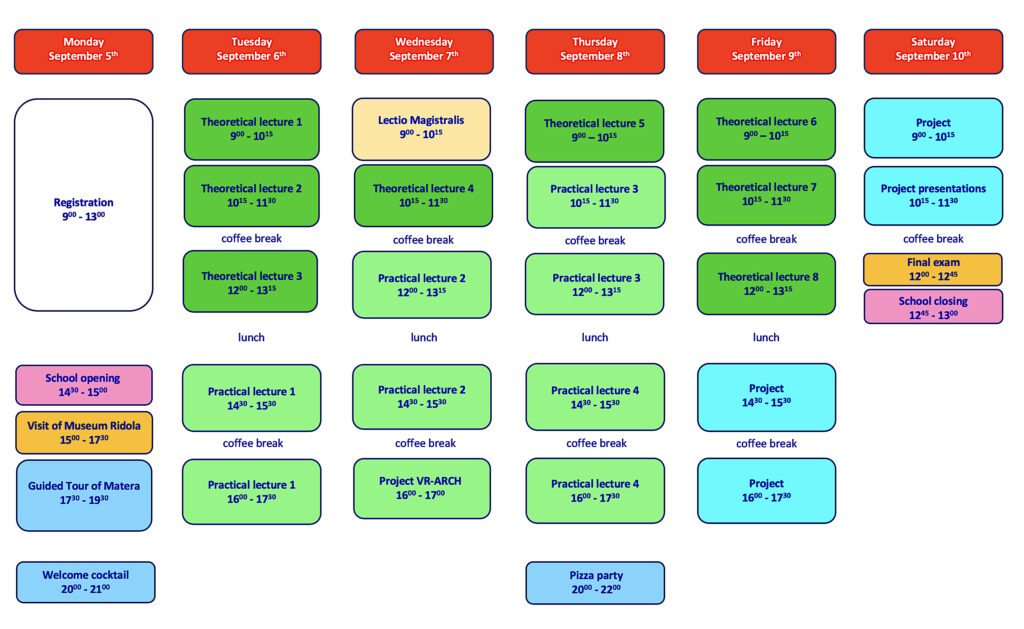
Lectio magistralis
Paolo Giulierini – Director of Museo Archeologico Nazionale di Napoli (MANN)
Theoretical lectures
Lecture 1: Markus Schütz, Rendering massive point clouds
Lecture 2: Marco Callieri, Experiences on using Digitizing Cultural Heritage online
Lecture 3: Adriano Mancini, Serious Games: a modern way to reach specific learning objectives
Lecture 4: Tomas Krilavičius, Applications of Artificial Intelligence
Lecture 5: Michela Spagnuolo, The role of geometry in intelligent cities of tomorrow
Lecture 6: Sofia Pescarin, Authenticity in Virtual and Hybrid Reality Experiences
Lecture 7: Luigi Gallo, Enhancing and promoting tangible and intangible cultural heritage: an HCI perspective
Lecture 8: Roberto Pierdicca, Lost Identities: the duty of Geomatics, the role of AI and the need for augmented worlds
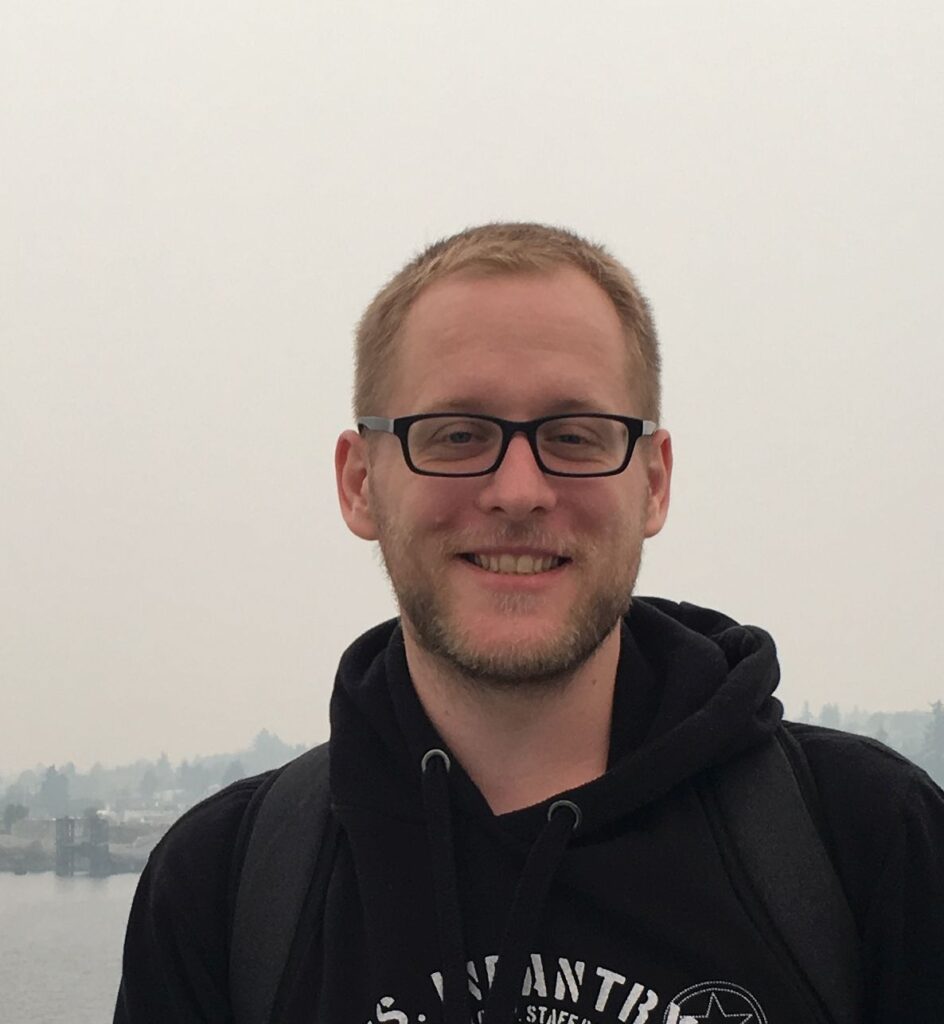
Markus Schütz – TU Wien (Austria)
Rendering massive point clouds
Markus Schütz is a postdoc researcher at the TU Wien rendering group, focusing on the real-time rendering of massive point clouds. His projects include Potree, a web-based viewer that allows users to stream and render data sets with hundreds of billions of points in a web browser, as well as research projects that display large data sets on desktops and in VR.
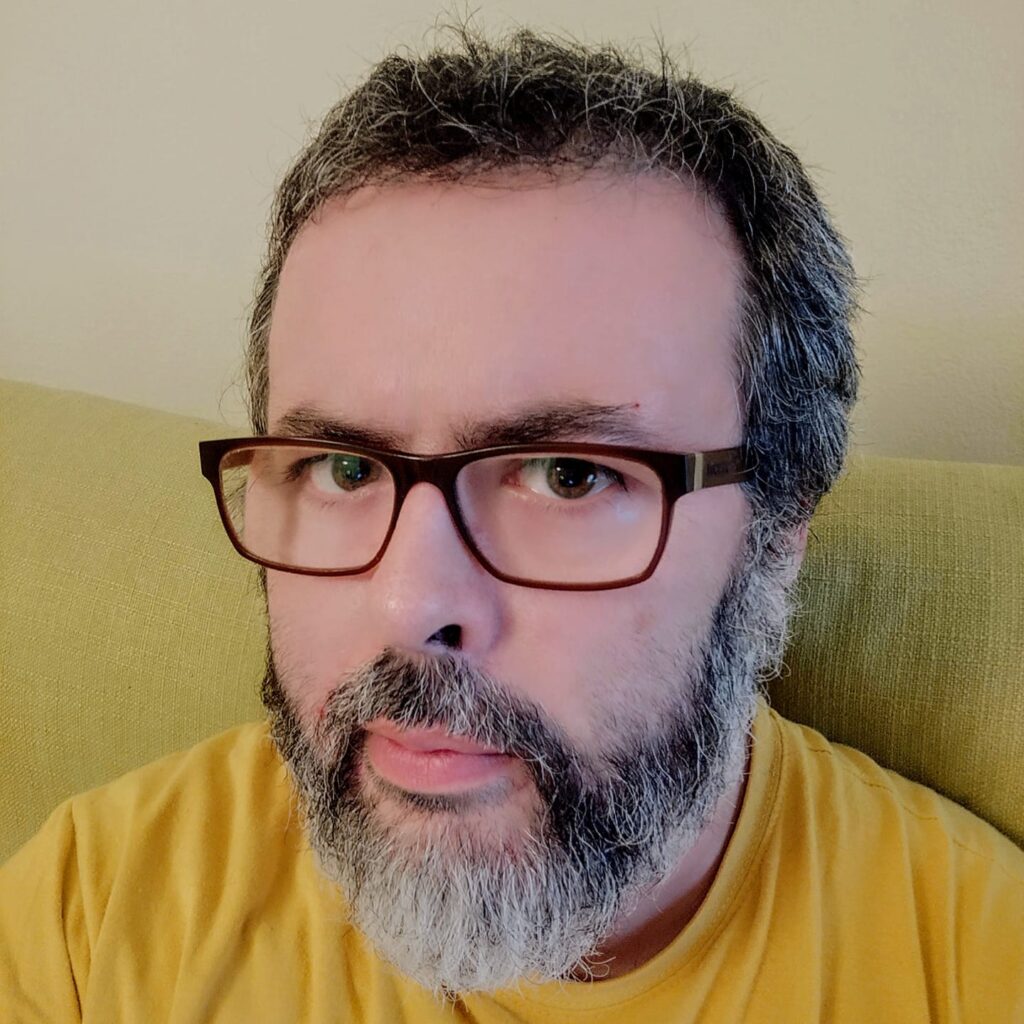
Marco Callieri – ISTI CNR, Pisa (Italy)
Experiences on using Digitizing Cultural Heritage online
Marco Callieri, expert in 3D scanning and digitization of real-world objects, especially Cultural Heritage artifacts with extensive expertise in data processing and 3D model creation, is a Senior Researcher at the Visual Computing Lab of ISTI-CNR (Institute of Science and Technologies of Information – National Research Council), in Pisa. His main research activity is focused on the use of digital technologies and in particular 3D computer graphics, in the Cultural Heritage field. He has coordinated and carried out various 3D scanning campaigns, both in Italy and abroad, and currently, he is mostly working on the web-based visualization of 3D models and their use for the documentation, study, conservation and presentation to the public of Cultural Heritage artifacts. He is a developer of MeshLab, and the main architect of 3DHOP.
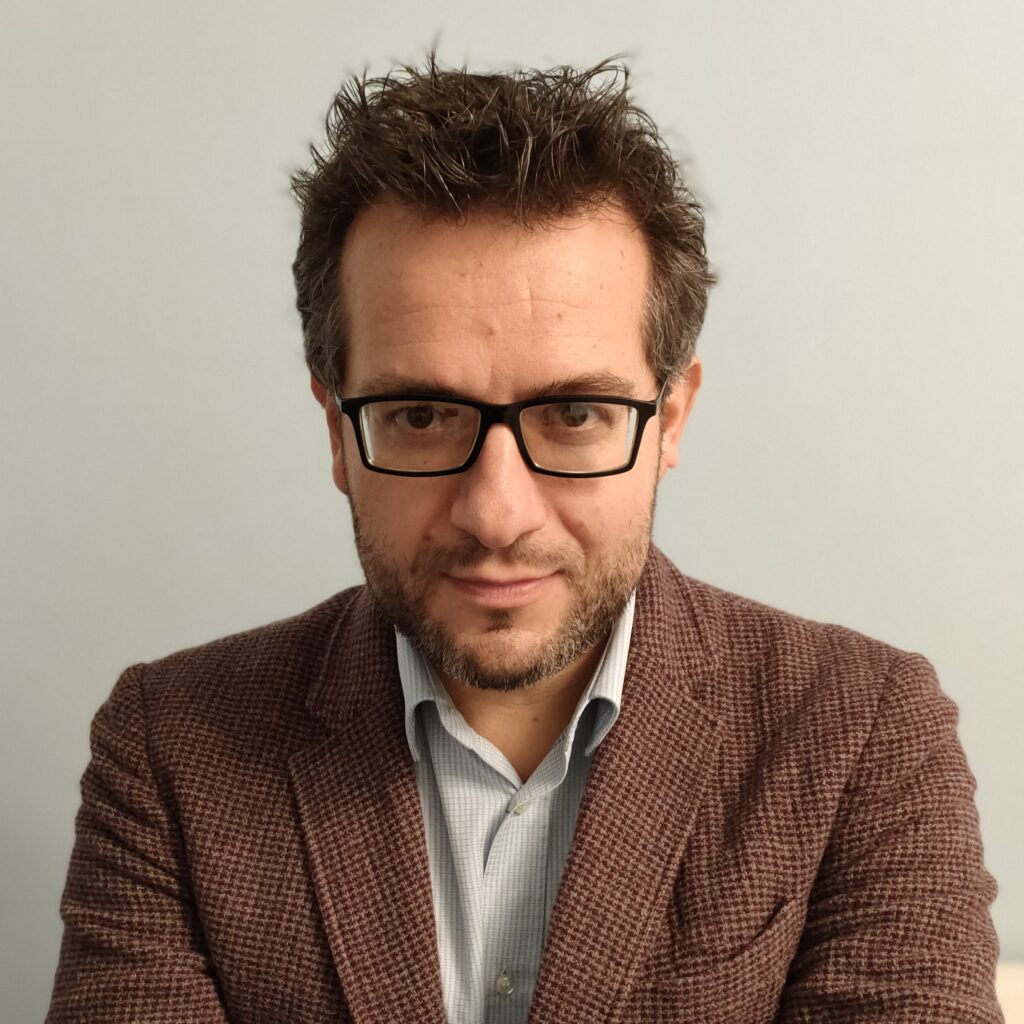
Adriano Mancini – Università Politecnica delle Marche (Italy)
Serious Games: a modern way to reach specific learning objectives
Adriano Mancini PhDis an Associate Professor at the Polytechnic University of Marche. His research activity is mainly in the field of computer vision and artificial intelligence with applications in robotics, video analysis, human behavior analysis and the automatic classification of images. He is also involved in several national and international projects (EU and Industry funded projects) in the field of precision/smart agriculture, remote sensing, mobile robotics and cloud-based technologies.
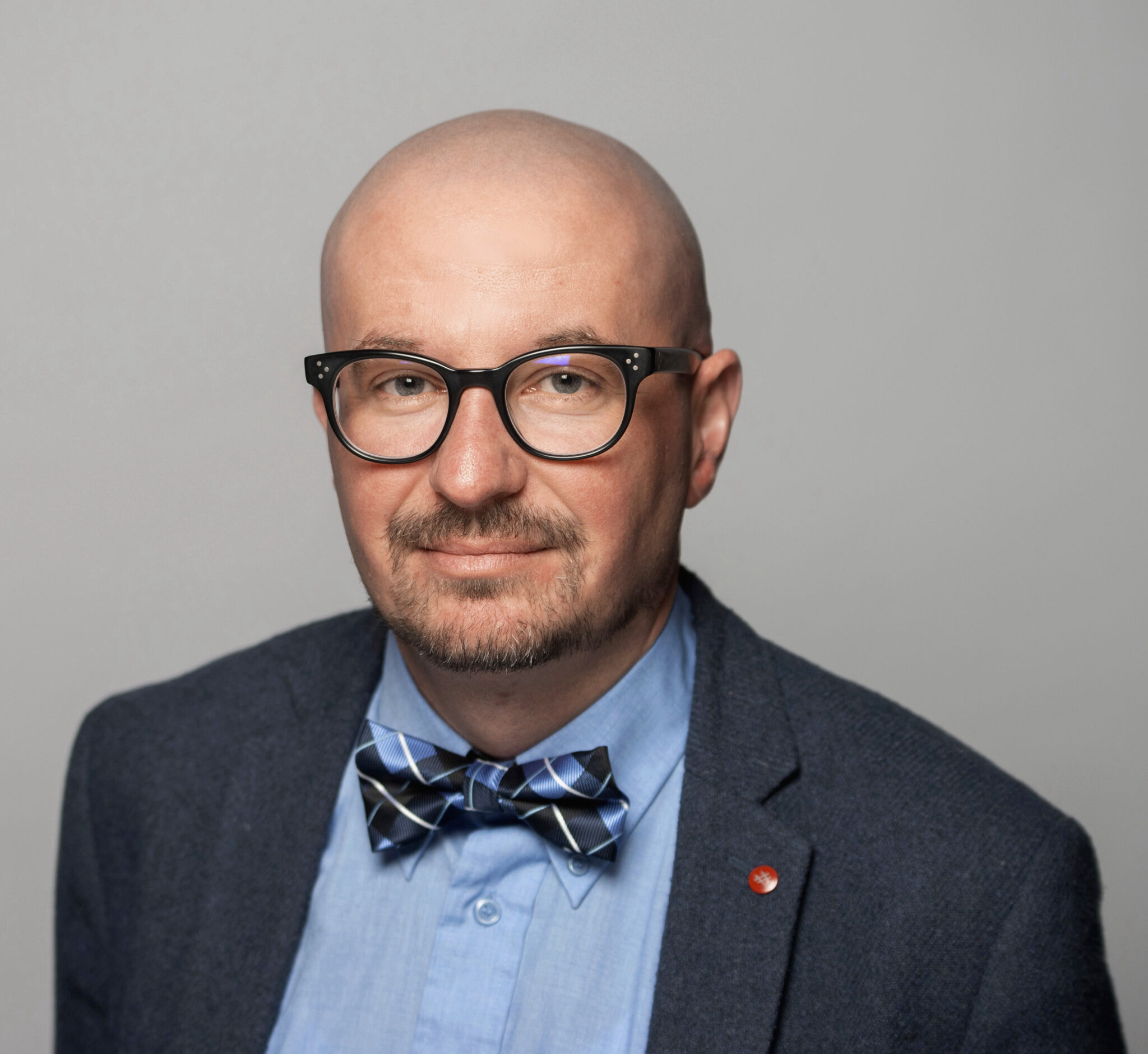
Tomas Krilavičius – Vytautas Magus University (Lithuania)
Applications of Artificial Intelligence
Prof. Tomas Krilavičius is a dean of the Faculty of Informatics at Vytautas Magnus University. He received his Ph.D. in 2006 at the University of Twente (The Netherlands) on hybrid process algebras. His current research interests include the application of Artificial Intelligence and Language Technologies. He is Lithuanian representative at NATO Science and Technology Organization Information Systems Technology panel and a member of the Clarin Centres Assessment Committee. Tomas is board member of Infobalt (Association of IT companies in Lithuania) and successful financial startup Kevin.
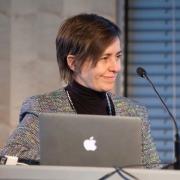
Michela Spagnuolo – IMATI CNR, Genova (Italy)
The role of geometry in intelligent cities of tomorrow
Dr Michela Spagnuolo is Research Director and Director of the Institute of Applied Mathematics and Information Technologies “E. Magenes”;(IMATI). Her scientific activity deals with the study and development of geometric and topological methods for representing, comparing and characterising surfaces and volumes. She authored more than 160 peer-reviewed scientific papers, one book on mathematical methods for shape analysis, and edited several special issues and books on the topics of shape analysis and modelling. She’s currently associate editor of international journals and chaired several conferences, including Eurographics 2019 and Shape Modelling International. In 2014 she was elected Fellow of EUROGRAPHICS, and serves now as vice-president of the same association.
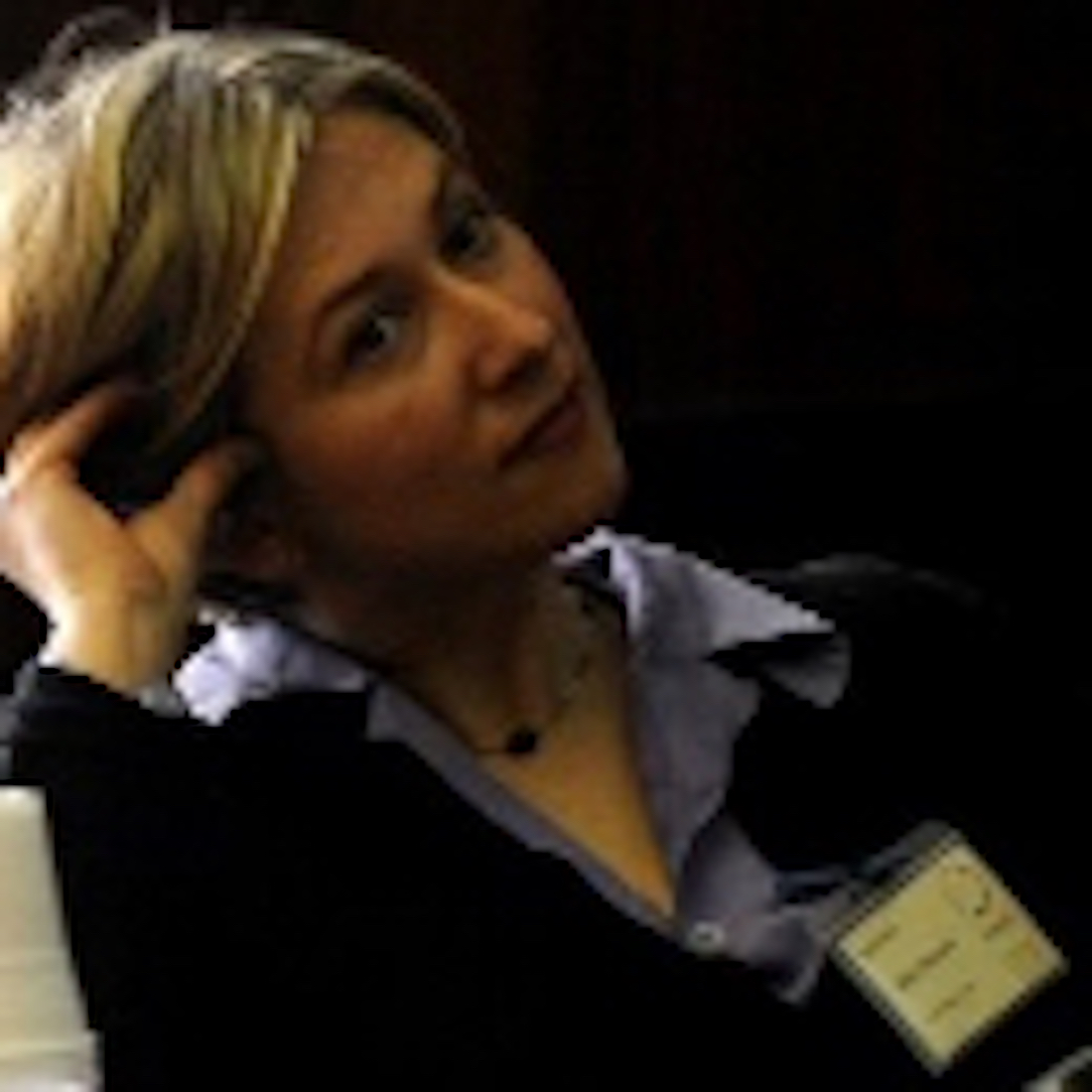
Sofia Pescarin – CNR ISPC (Italy)
Authenticity in Virtual and Hybrid Reality Experiences
Sofia Pescarin has a degree in Archaeology, a master in Exhibition Design and a PhD in History and Computing. She is currently Senior Researcher at the National Council of Researches (CNR ISPC) in Florence, at the Digital Heritage Innovation Lab (DHIlab). Her research interests cover a wide domain that includes Virtual Archaeology, Digital Heritage, Virtual Museums, Embodied Cognition and Museology, Serious Games, Interactive Media Design. She is Chief Editor of the Journal “Digital Application in Archaeology and Cultural Heritage”. Since 2018 she is a professor at the University of Bologna where teaches “Interaction media design”. Among her projects: Virtual Museum of the Scrovegni Chapel of Giotto in Padova (2003), Virtual Rome (2006), Archeovirtual (2008-2017), Virtual Museum Transnational Network (2011-2014), Digital Heritage World Congress (2013), Keys to Rome (2014), A Night in the Forum videogame for Playstation VR (2019).
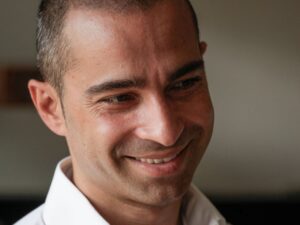
Luigi Gallo – ICAR CNR, Napoli (Italy)
Enhancing and promoting tangible and intangible cultural heritage: an HCI perspective
Luigi Gallo is a Senior Research Scientist at the National Research Council of Italy, Institute for High-Performance Computing and Networking (CNR-ICAR), where he leads the Augmented Human-Computer Interaction (AHCI) research group. He is also a faculty board member of the PhD course on “Humanities and Technologies” of the University of Macerata. He holds leadership roles within funded research projects in the fields of ICT for health and cultural heritage applications. Currently, he is the deputy coordinator and principal investigator for CNR of the EU H2020 project SMART BEAR, and coordinator for the CNR of the projects REMIAM, PAUN and e-Brewery. He serves, as associate editor, the Pattern Recognition Letters and the Heritage journals, and is a member of the steering committee of the IEEE SITIS conference.
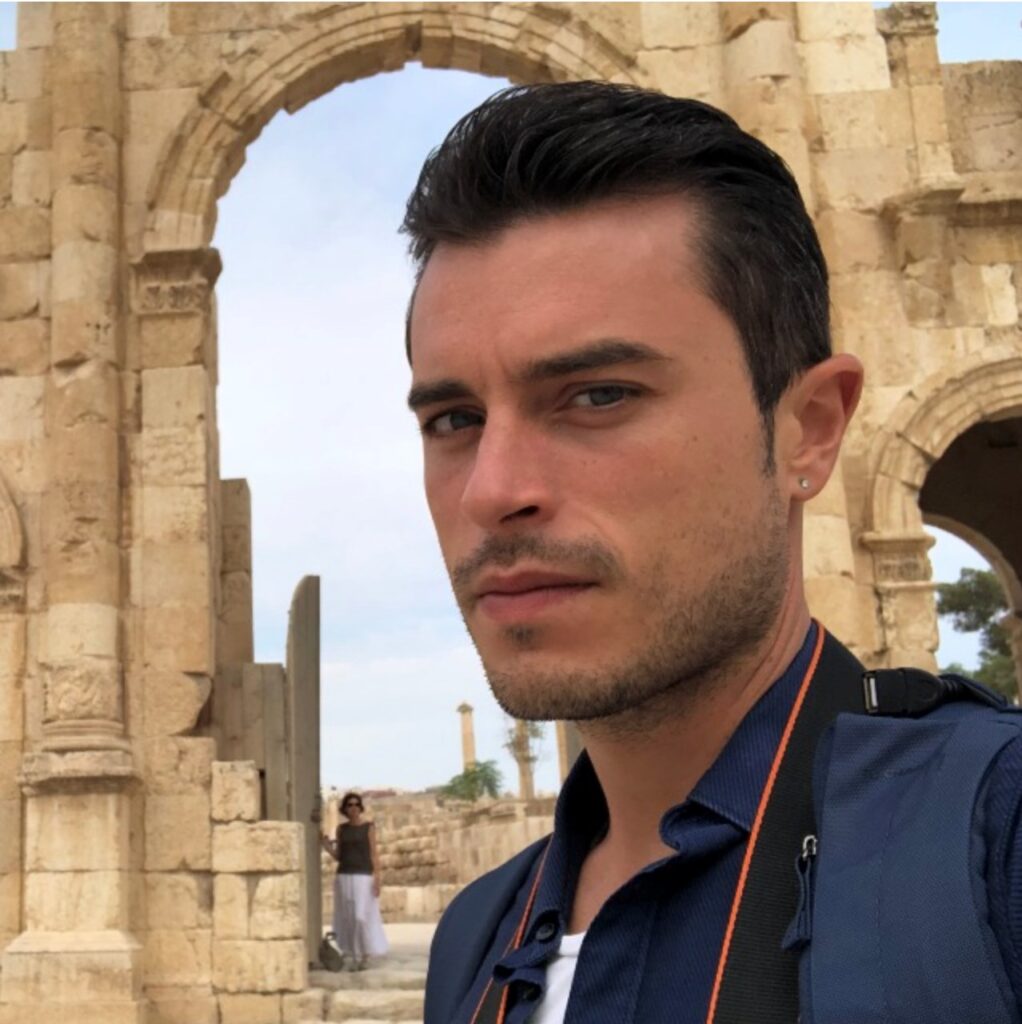
Roberto Pierdicca – Università Politecnica delle Marche (Italy)
Lost Identities: the duty of Geomatics, the role of AI and the need for augmented worlds
Roberto Pierdicca is assistant professor and adjunct professor of Geomatics. His research interest is mainly focused on Geospatial Intelligence, Photogrammetry and Remote Sensing, 3D Point Clouds. He is author of more than 100 papers in international conferences and journal, and participates to several international projects related to Cultural Heritage, Tourism Management, Education, Geosciences and Archaeology.
Practical lectures
Lecture 1: Nicola Capece, 3D reconstruction with Reality Capture software
Lecture 2: Kasım Özacar, 3D Architectural Modeling in Blender
Lecture 3: Bruno Fanini, Hands on ATON: creating cross-device, XR and collaborative 3D presentations for Cultural Heritage on the Web
Lecture 4: Tommaso Pantaloni, Introduction to Unity for cross-platform 3D realtime application
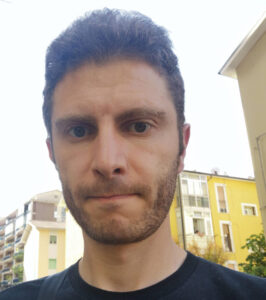
Nicola Capece – Università della Basilicata, Potenza (Italy)
3D reconstruction with Reality Capture software
Nicola Capece is a postdoc researcher at the University of Basilicata (Italy). His research activities include Real-Time and Offline Rendering, Deep Learning and Computer graphics, eXtended Reality (XR), and Human-Computer Interaction (HCI). He is the author of several papers in international journals and conferences. He is involved in several research projects concerning the XR and HCI for an authoring tool, a virtual dressing room, and a hand gestures recognition system. He is also an adjunct professor of Software Engineering and Photogrammetry Lab.
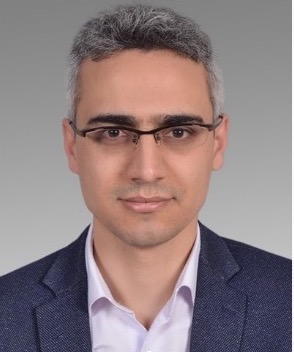
Kasım Özacar – University of Karabuk (Turkey)
3D Architectural Modeling in Blender
Kasim Özacar completed his PhD in designing and evaluation of 3D interaction techniques with different types of displays such as stereoscopic displays, VR and AR in Japan. He has research experiences and academic publications in these fields. He is currently giving OOP and game programming courses in the department of computer engineering, as well as Virtual Reality and 3D Modeling courses for graduate students in University of Karabuk. He is also working as a researcher in an ongoing project regarding utilizing VR technology in architectural education.

Bruno Fanini – CNR ISPC (Italy)
Hands on ATON: creating cross-device, XR and collaborative 3D presentations for Cultural Heritage on the Web
Bruno Fanini has a PhD in Computer Science, he is currently a researcher at the National Research Council, Institute of Heritage Science (CNR ISPC) in Rome – Digital Heritage Innovation Lab (DHILab). He focuses his research and development activities on real-time 3D graphics, immersive VR visualization, natural interaction and design of 3D user interfaces. He designed and developed open-source Web3D/WebXR tools (like ATON framework), serious games, virtual museums and interactive applications targeting Cultural Heritage. He is responsible for different projects dealing with interactive 3D visualization, online 3D presentation, interaction models and immersive VR through head-mounted displays.
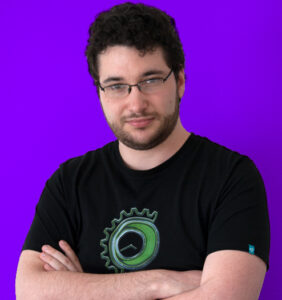
Tommaso Pantaloni – Ubisive (Italy)
Introduction to Unity for cross-platform 3D realtime applications
Tommaso Pantaloni has a degree in Computer Science from the University of Bologna. He is a co-founder of 48hStudio and Ubisive, two software development companies that are specialized in video games, multimedia, mobile and desktop apps, augmented and virtual reality, 3d applications for the web. His work is mainly focused on developing cross platform applications using technologies like Unity and Xamarin, with a particular interest in augmented and virtual reality. He also taught various courses on game programming and cross platform development.
Visit of Museum Ridola
Lectures and guided tour by Dr. Anna Maria Mauro – Director of Museo Archeologico Nazionale Domenico Ridola of Matera
Deadline
Registration is still open!
Registration
For the payment of the school participation fee is mandatory to carry out the school registration.
Submit your official registration through this button
Registration fee
The XR&AI Summer School 2022 registration fee includes lectures, daily lunches and coffee breaks as well as the pizza party and the guided visit of the town.
The registration fee does not include the accommodation costs.
For the attendance in presence, the registration fee is € 500 (including VAT).
For the virtual participation, the regular registration fee is € 400 (including VAT).
The payment can be carried out:
– by bank transfer
Bank transfer details:
Beneficiary: XRtechnology srl
Bank name: Banca Sella
IBAN: IT56W0326816001052185926780
SWIFT: SELBIT2BXXX
Reason: XR&AI Summer School 2022 + name of person attending the school
– by credit card through the following PayPal link:
http://conference.unisalento.it/ocs/index.php/xr2022/index/pages/view/paypal-xrai-summer-school-2022
Reason: XR&AI Summer School 2022 + name of person attending the school
Please send copy of the payment receipt by email to xr-ai-school@xrsalento.it
To receive the invoice for the school registration fee, please download here the application form and return it completed.
For further information, please contact chairs xr-ai-school@xrsalento.it
Location
Casa delle Tecnologie Emergenti
Via S. Rocco, 1 – 75100 Matera, Italy
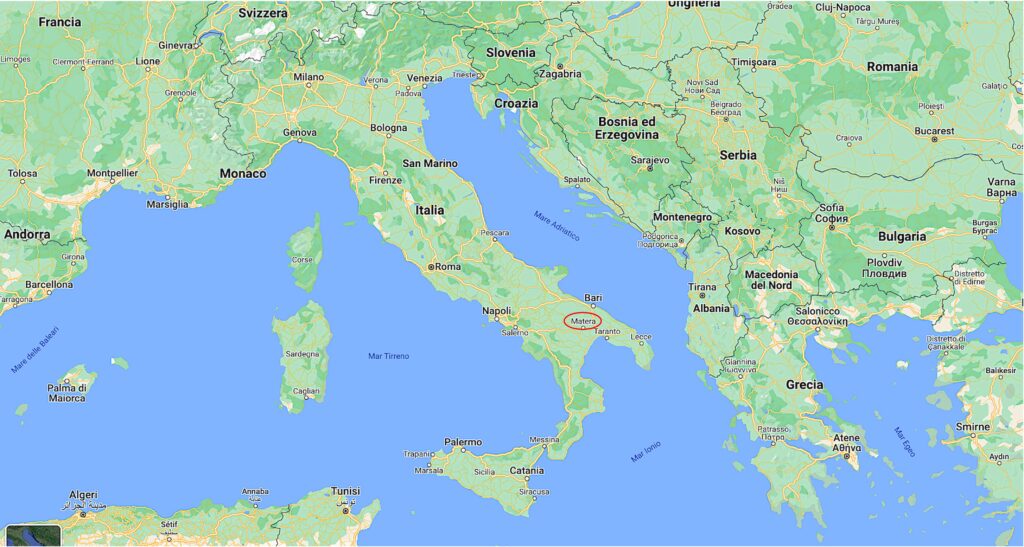
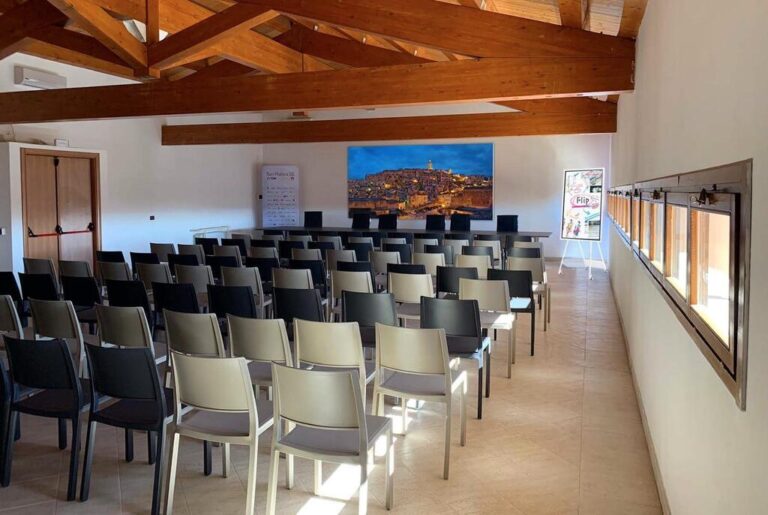
Matera
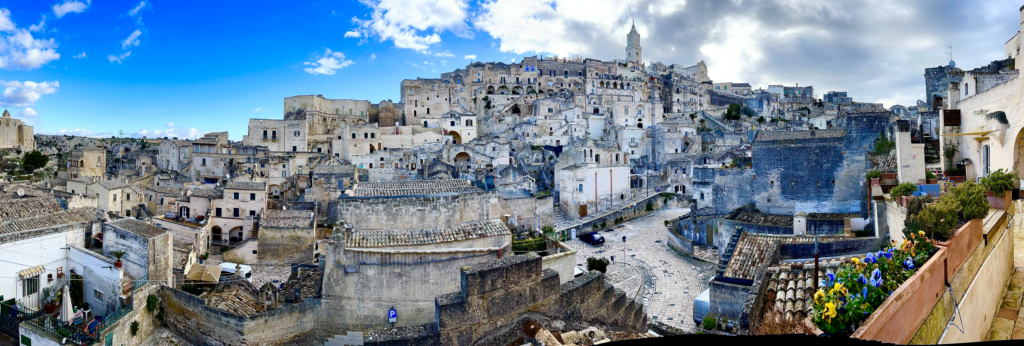
From Bari Palese Airport
- by direct shuttle bus service served by Miccolis (see the “Direct Booking ” section);
- by direct shuttle bus service (see the “Bus Tour of Aeroporti di Puglia” section);
- by direct shuttle bus service by Grassani E Garofalo (see the timetable);
- by train with the Nord Barese Railway Line (ferrovienordbarese.it), reaching the station of Bari Centrale. Leaving the station, you get Piazza Aldo Moro: at that point, turn left to reach FAL (Ferrovie Appulo Lucane), where several trains arrive at Matera Centrale Station in about 80 minutes.
- by private transfer booking by sending an e-mail to info@ferulaviaggi.it
From Brindisi airport
You can get to Matera from Brindisi airport (about 154 km) with Pugliairbus via Bari Palese airport (and vice versa).
Otherwise you can book a private transfer by writing to info@ferulaviaggi.it
From Naples Airport
Once landed, you can take a bus line (see section “By Bus” for more information).
Suggested accommodation
Casa per Ferie Sant’Anna
Via Lanera, 14 – 75100 Matera (Italy)
phone: +39 0835 33 34 62

